Meet the inspirational feminists who are slaying the patriarchy
There are so many ways to slay the patriarchy – from challenging restrictive labels and stereotypes, like the archaic view that “girls and science don’t mix” *eyeroll*, or even just saying something in the workplace and calling out sexism when you see it, to joining a feminist organisation or book club. Or perhaps it’s more your style to revolt in the street with the gals after brunch, holding pitchforks and relatable/instagrammable signs?
Regardless of the method you choose to carry on fighting the good fight, it can often get pretty draining. It’s exhausting to take it upon yourself to stand up for something you believe in so strongly only to be constantly shut down by the exact oppressive systems you are fighting against!
2017 has felt like a pretty desolate time for women’s rights, but next time you feel like giving up, like it’s a never-ending battle or simply just feel alone in your efforts, I’d like you to take a look at some of these women’s and girls’ groups all over the world, who are on side and who tirelessly work toward achieving the same goal as you – a gender equal society.
Behind closed doors and doors you don’t even know about, there are ripples being made by fierce individuals, organisations and societies, which are creating this huge, impactful wave, pushing out and spreading this radical notion that girls are people with rights too (outrageous, I know).
The future is female for reaaaaal.
Here are six girl-run, badass organisations who will inspire you to keep going in 2018!
1. The Young Women’s Freedom Center, USA
Every day in San Francisco, the most marginalised girls are told they have little chance of success, that they are criminals, damaged or broken. Women of colour and those who identify as LGBTQIA* often suffer the destructive impacts of misogyny, racism and poverty the most. Many have been victims of violence or trafficking. Others have struggled with drug addiction and homelessness. Instead of being treated as victims of trauma, they are often dismissed as criminals and pushed into an already overburdened system such as the criminal system or child protective services, which neglects their vulnerability and mental health.
The Young Women’s Freedom Center (YWFC) was setup in 1993 to help empower girls and young women to overcome the conditions that have held them back. YWFC is proactive about meeting girls wherever they are and provides resources, support, training and networking opportunities. They also offer paid internships for young women and girls aged 14-24 who have been incarcerated and have lived and worked on the streets or who have become isolated young mothers.
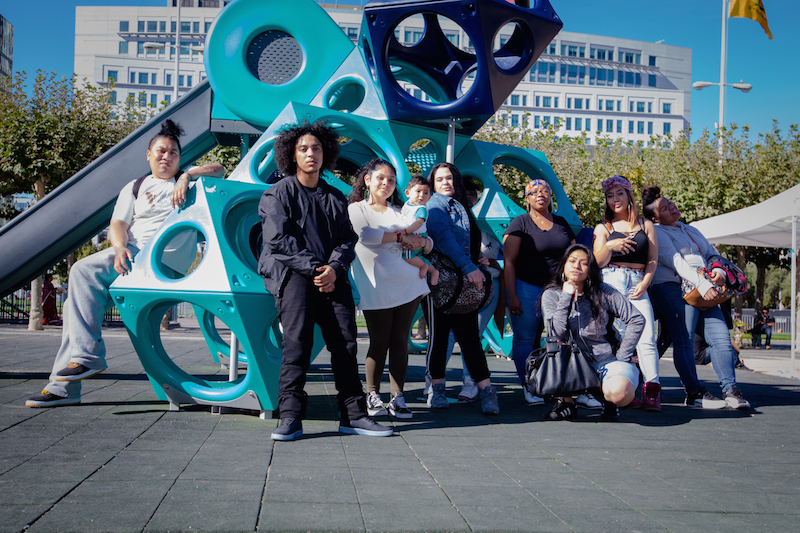
YWFC Chief Executive Jessica Nowlan on women’s rights and equality today: “This is a scary time in our country and around the world, but I know that if we invest in the leadership of young women and girls who have truly felt the most corrosive impacts of patriarchal, violent and racist systems, then they will rise and together we can really re-imagine freedom and re-imagine liberation. These are the young women we need to change the world.”
2. The National Federation of Women’s Communities of Kyrgyzstan (NFFCK), Kyrgyzstan
In 2012 VICE produced a documentary in Kyrgyzstan about bride kidnapping which caused shock and outrage to viewers. In Kyrgyzstan, an estimated 12,000 women and girls are abducted for marriage annually. Many of these marriages are religious ceremonies that are unregistered by the state, so wives are not entitled to the same rights afforded to a registered spouse, including property, child support or alimony. The problem is worse in rural areas where 80% of marriages are conducted through kidnapping. Poverty and illiteracy along with religious and patriarchal attitudes have continued to sustain the acceptability of child marriage. To add insult to injury, authorities are soft on perpetrators, which means illegal marriages continue to take place daily, causing immeasurable harm to girls’ psychological and physical wellbeing.
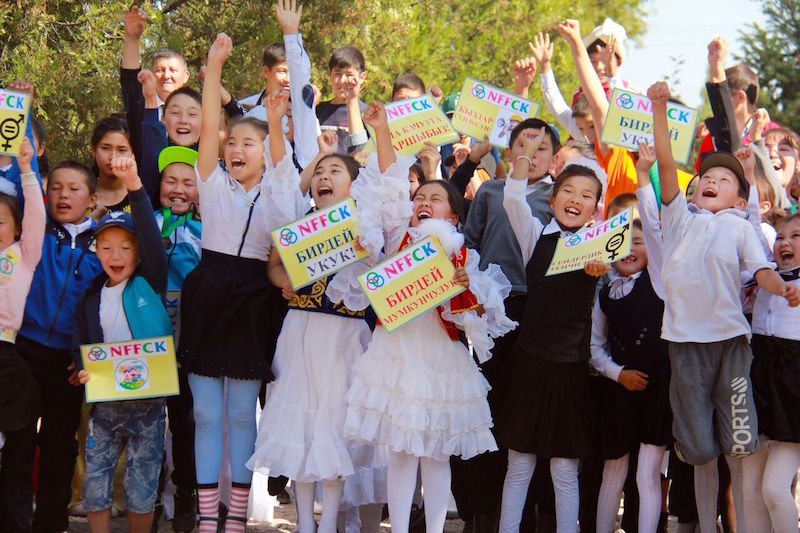
NFFCK was set-up by a group of SUPER BADASS TEENAGE GIRLS (aged 12-14) to fight against child marriage, bride kidnapping and gender-based violence. Today, the organisation works to help women and girls aged 10-19 acquire the skills for a healthy, active and independent life. In the last two years, NFFCK has helped 41 girls avoid child marriage and provided 482 girls with practical support. Thanks to NFFCK’s work, more than 12,000 girls have increased their knowledge of girls’ rights.
3. Forum des Femmes Autochtones du Cameroun, which translates as Forum of Indigenous Women of Cameroon (FFAC), Cameroon
FFAC was set-up by Bouba Aeisatu Ibrahim, a Cameroonian woman who escaped being a child bride at the age of 13. Determined to change the situation for the countless girls in her community who continue to be coerced into early marriage and a life of servitude, she started her own girl-led, grassroots organisation.
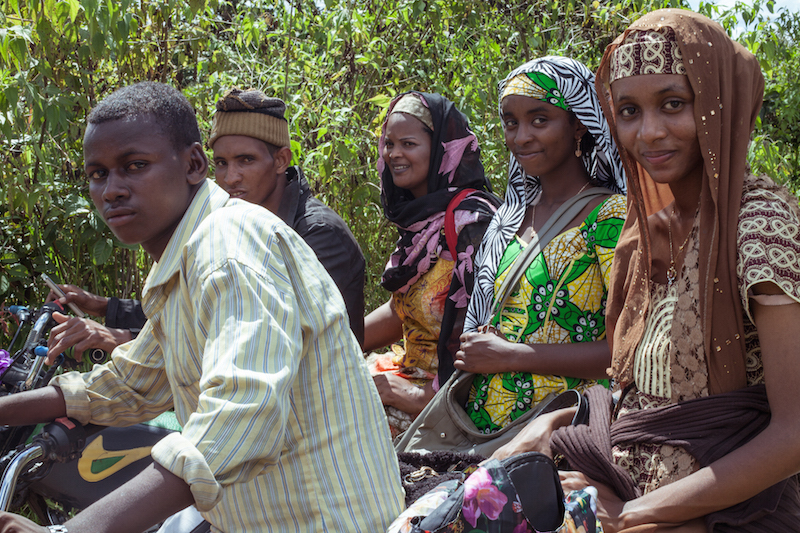
FFAC aims to create a society where indigenous women and girls are free from all forms of violence, discrimination and marginalisation. It works with minority girls, vulnerable children and young women who have been victims of gender-based violence. It organises workshops to educate religious leaders about harmful cultural practices and child marriage. FFAC also offers psychological counselling to victims of gender-based violence and educates girls on reproductive health and the prevention of HIV/AIDS. The organisation has helped over 1,200 people to date.
4. Girls United for Human Rights (GUHR), Pakistan
Hadiqa Bashir was just seven years old when one of her closest friends was promised in marriage by her parents. As a young child, Hadiqa’s first thoughts turned to the celebrations, the parties and the dresses for the ceremony. But the darker side of the situation began to emerge as she watched her friend, now engaged, banned from any form of play and from school. After the marriage, the friend began to show cuts, bruises and other signs of violence inflicted by her new husband. After escaping child marriage herself later on in life, Hadiqa set up Girls United for Human Rights (GUHR) in 2014. Today, she is just fifteen years old and the all-girl organisation is working to end child marriage and promote girls’ rights.
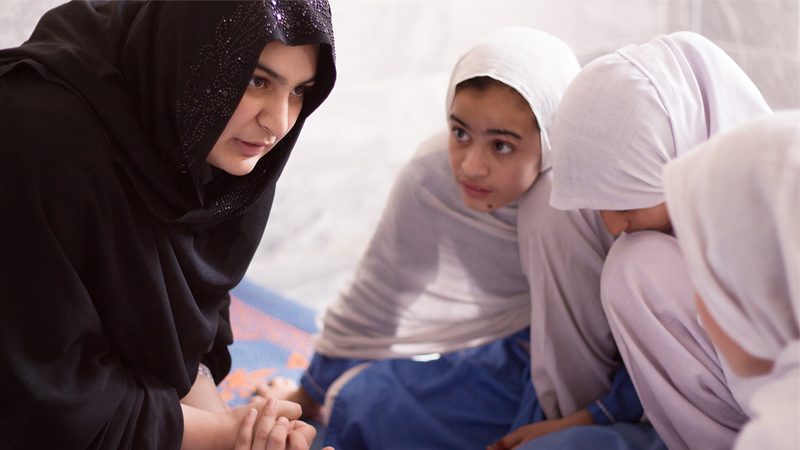
The organisation has developed educational materials for young girls to learn about their rights that it distributes in schools and publishes online. GUHR runs a media campaign to raise awareness and its members go door-to-door to engage with religious leaders, community elders, parents, grandparents, school teachers and legislators. It also addresses government and department representatives to try to change the mindset that allows for girls to marry at such a young age. GUHR is a strong girl-centred organisation whose activities are girl-led. It is successfully challenging the gender roles embedded by patriarchal systems in the conservative communities it works with and has reached over 5,000 girls in the process of its work.
5. Productive Organization for Women in Action (POWA), Belize
Visitors are lured to Stann Creek in southern Belize by stunning beaches and dreamy landscapes, but the town’s residents experience the far more sobering realities of poverty, violence and gender discrimination. Girls have limited access to information on sexual and reproductive health and rights (SRHR), which means they are unable to understand and negotiate safe sex. This leaves them vulnerable to exploitation and abuse.
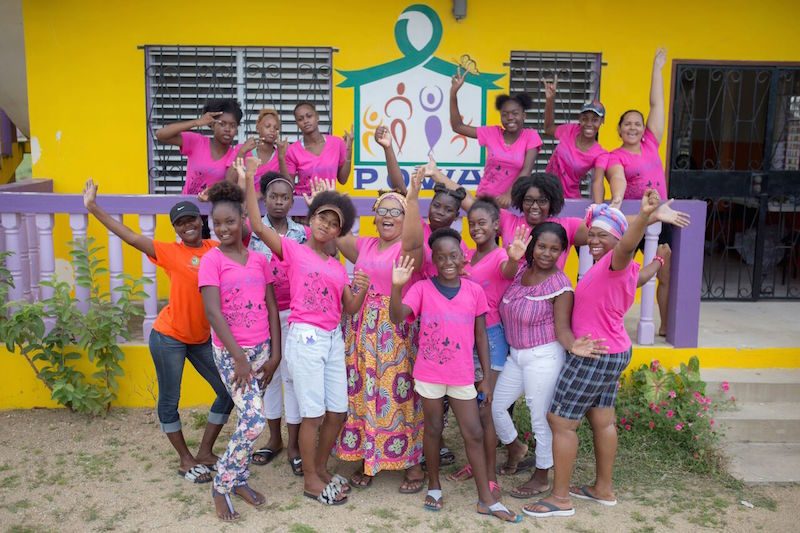 POWA works to eliminate discrimination and gender inequity in southern Belize and combat the spread of HIV/AIDS. POWA also seeks to build the capacity of girls and women and engage the community in bringing an end to violence against children. It does this through a series of workshops, lectures and awareness initiatives. The benefit of working in such a small community means POWA members are better able to mobilise support and help girls in their neighbourhoods. As a result, more girls from the area have had access to school and have managed to stay in school despite challenging circumstances.
POWA works to eliminate discrimination and gender inequity in southern Belize and combat the spread of HIV/AIDS. POWA also seeks to build the capacity of girls and women and engage the community in bringing an end to violence against children. It does this through a series of workshops, lectures and awareness initiatives. The benefit of working in such a small community means POWA members are better able to mobilise support and help girls in their neighbourhoods. As a result, more girls from the area have had access to school and have managed to stay in school despite challenging circumstances.
6. L’Association Errahma des Handicapées Azilal, Morocco
In Morocco, notions of disability are outdated and people with disabilities are often treated as charitable cases. They are infantilised by society and the language used to refer to them exacerbates the stigma they face. They face social, economic and educational exclusion. Morocco is a signatory to local and international treaties on the rights of people with disabilities, yet these rights are rarely translated on the ground. Disability laws tend to focus on prevention and look at the issue from a medical perspective rather than a human rights one. Children with disabilities are a major cause of concern because of the lack of access to education. Disabled girls, particularly those living in rural areas, face multiple prejudices and therefore have the lowest chance of obtaining an education. According to Moroccan government figures, 80% of women living with disabilities have no educational attainment compared with 53% of disabled men.
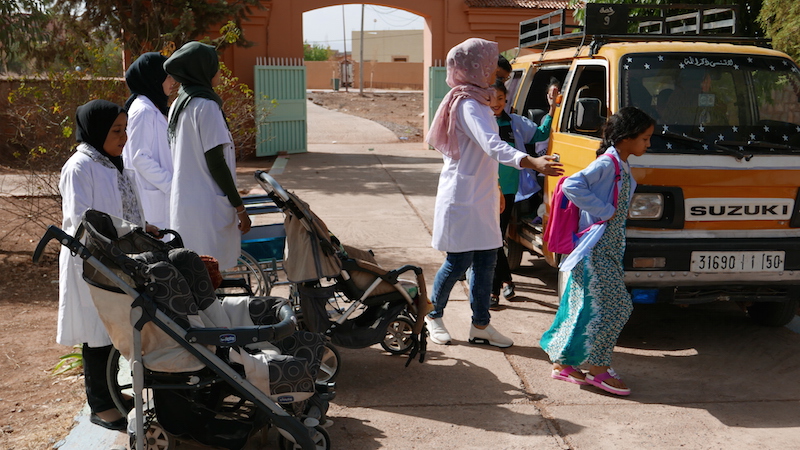
L’Association Errahma des Handicapées Azilal offers disability screening services, medical services and supports those who need surgical interventions. Errahma’s strong participatory approach has been a crucial element in its success. To date, it has reached over 1,600 people.
As feminists, we are part of a global fight to achieve equality, which starts at a community level. We are all ambassadors of change and have the power to impact those around us and eventually, together, the whole world! All of the organisations above have just been awarded flexible funding in the form of the With And For Girls Awards, by a collective of organisations which firmly believes that girls are agents of change and focuses on funding, recognising and supporting grassroots, girl-led organisations.